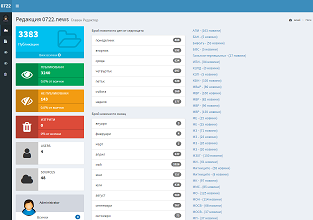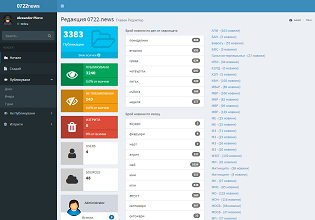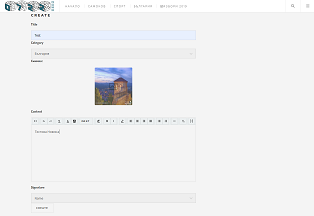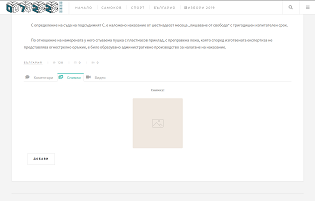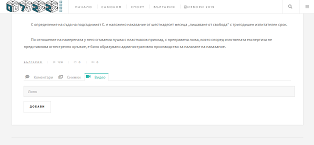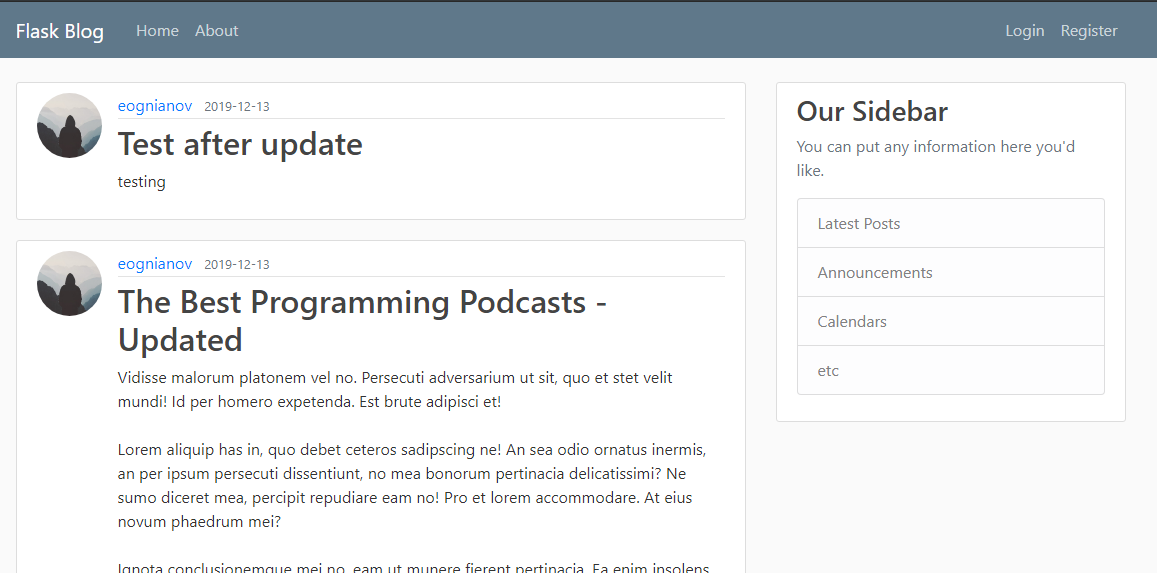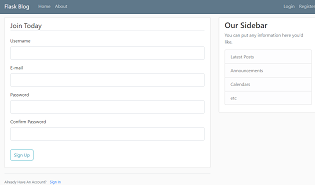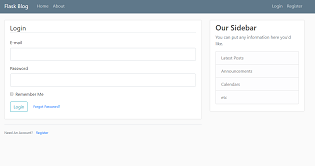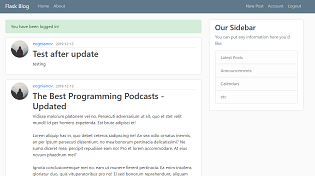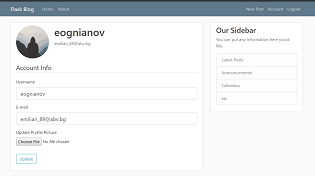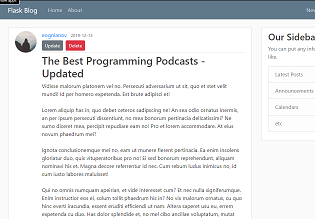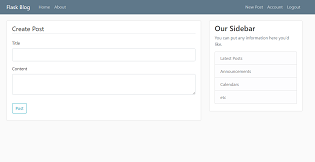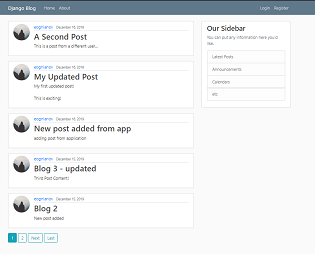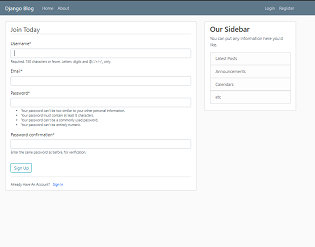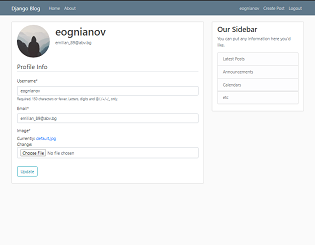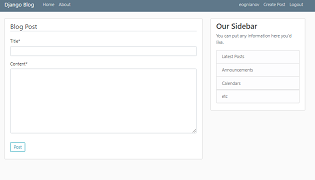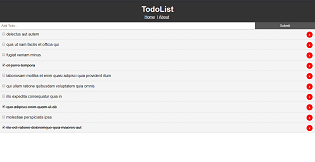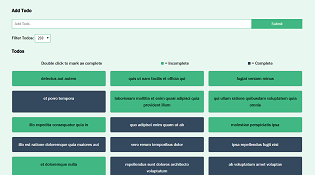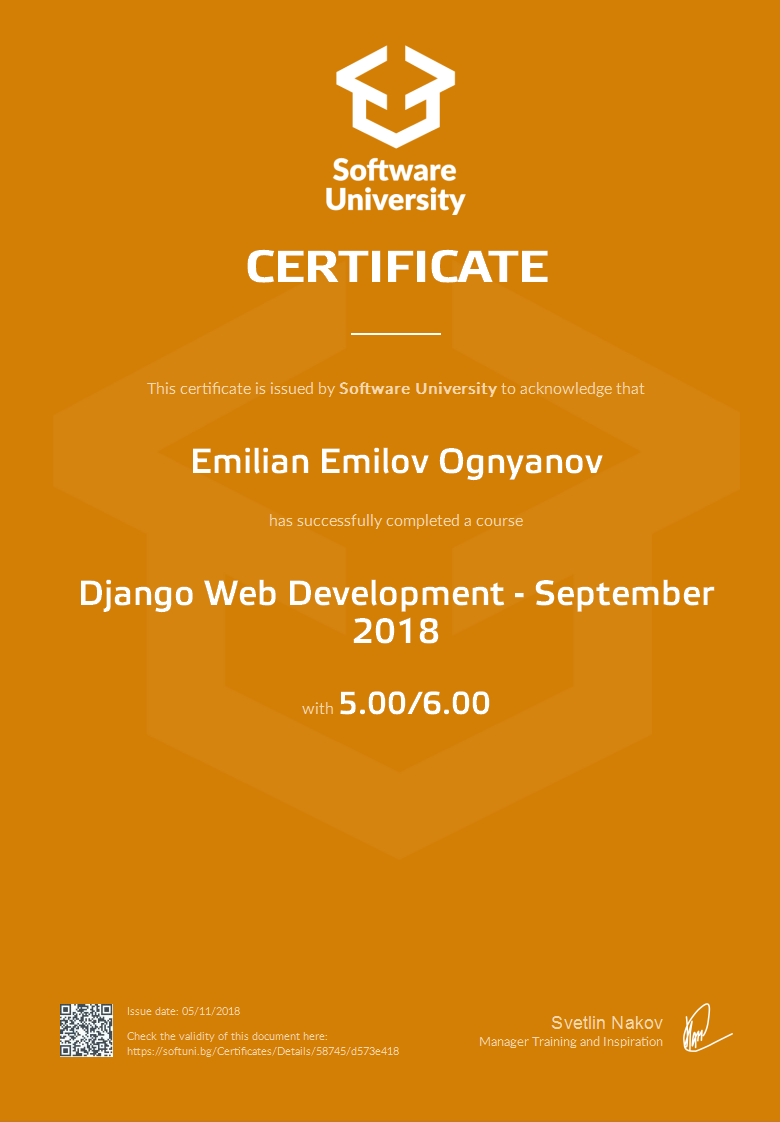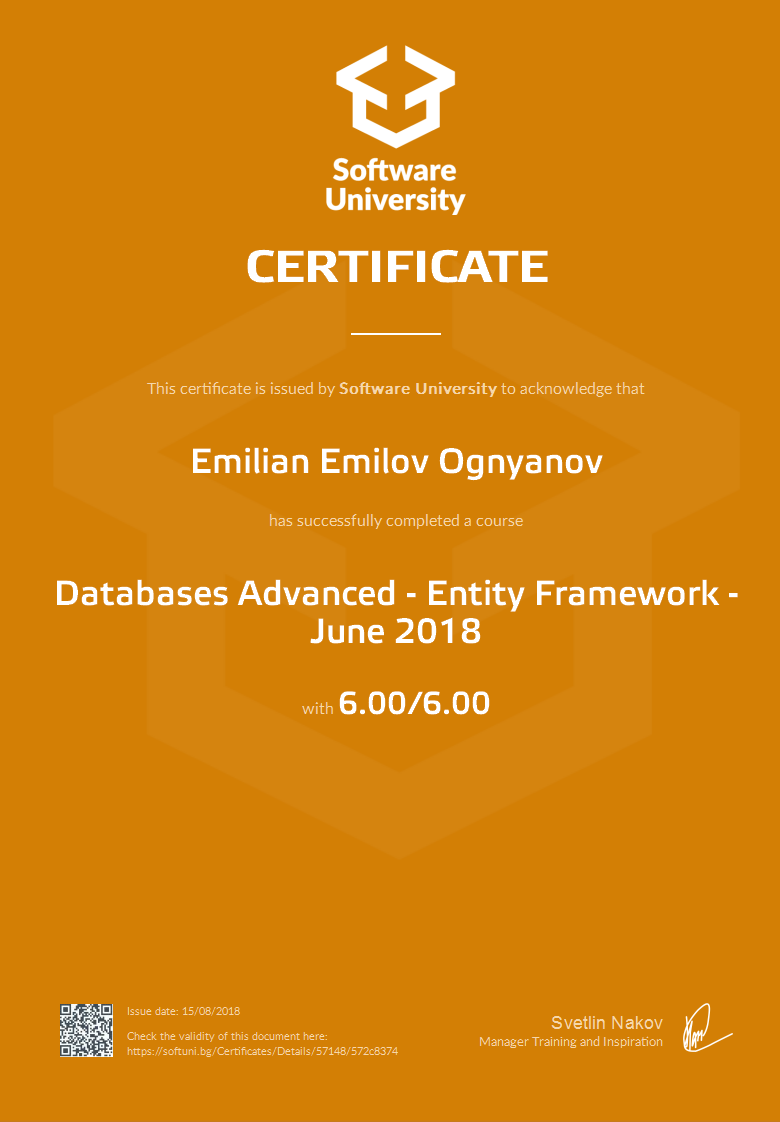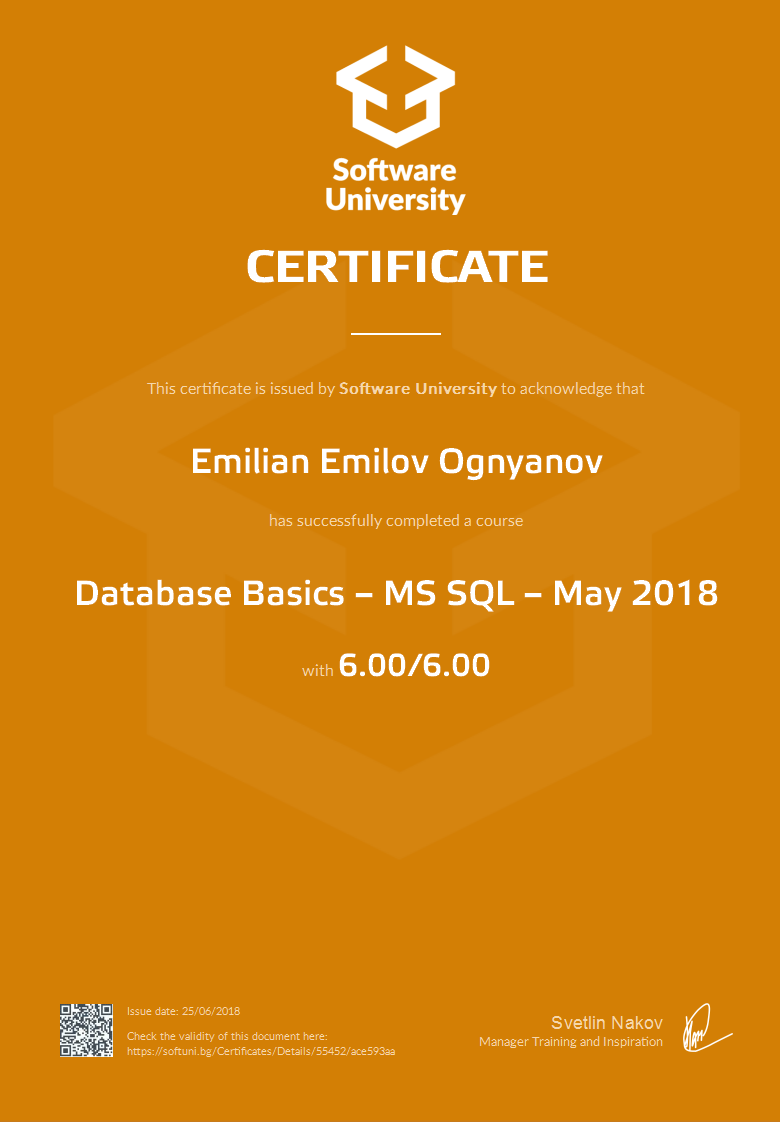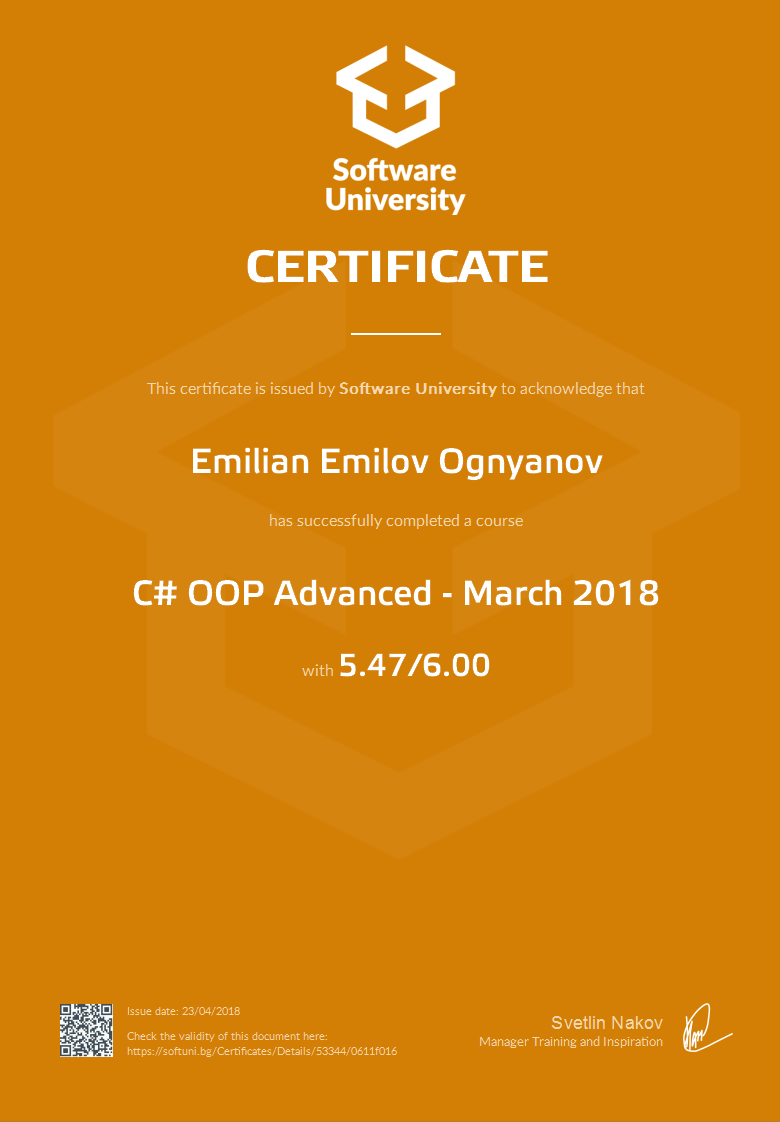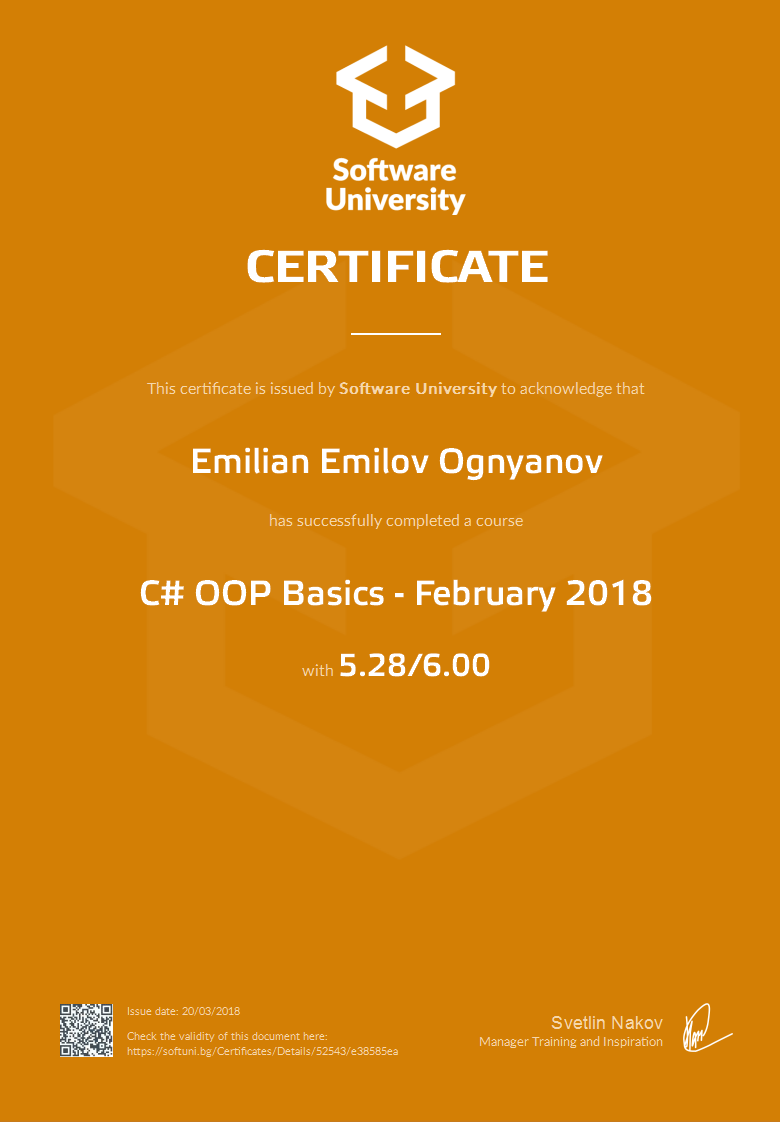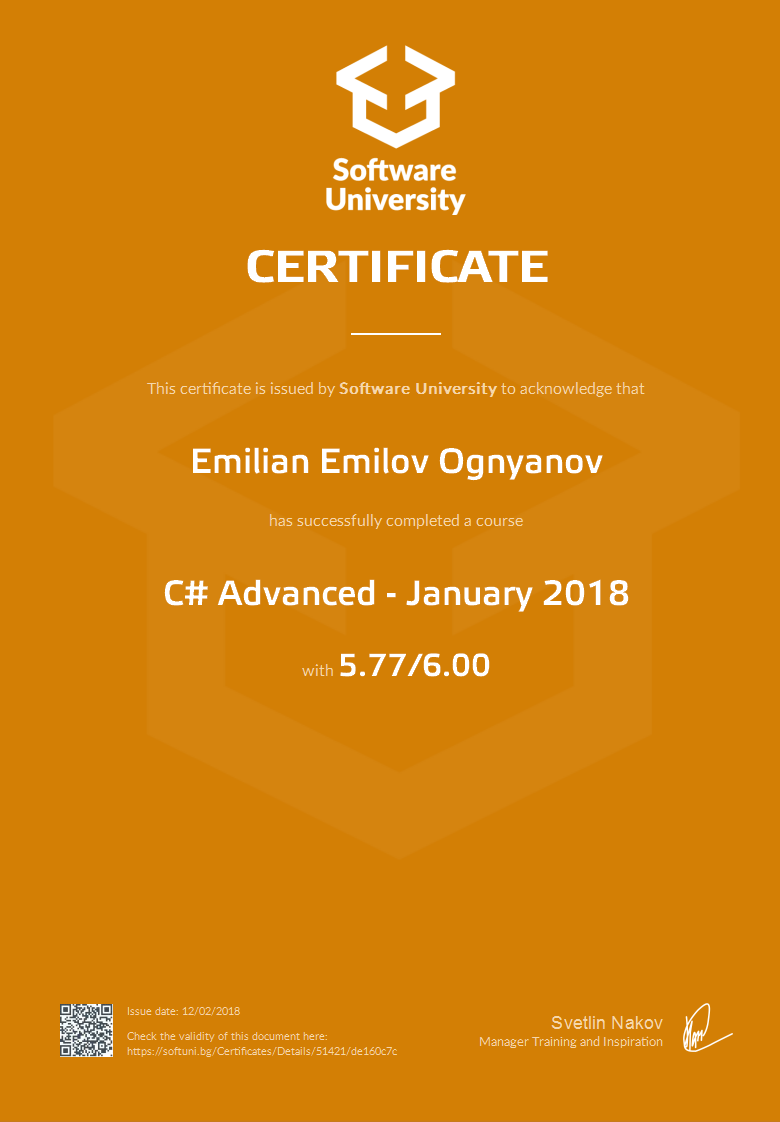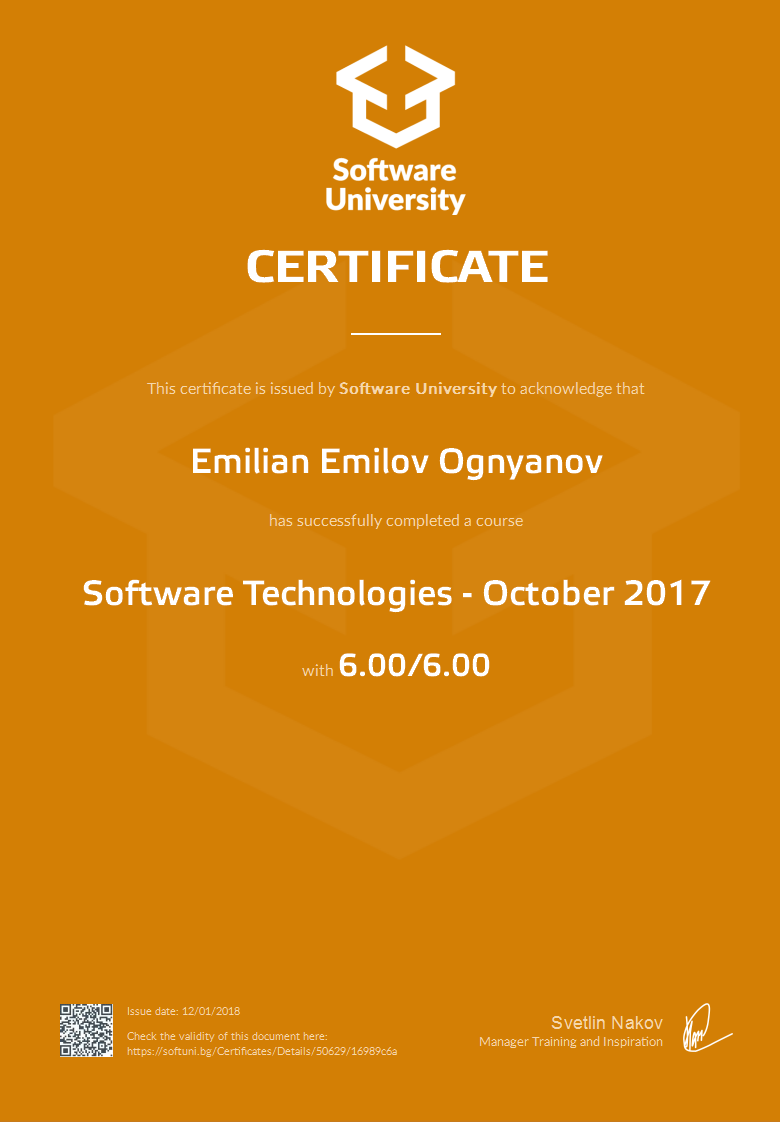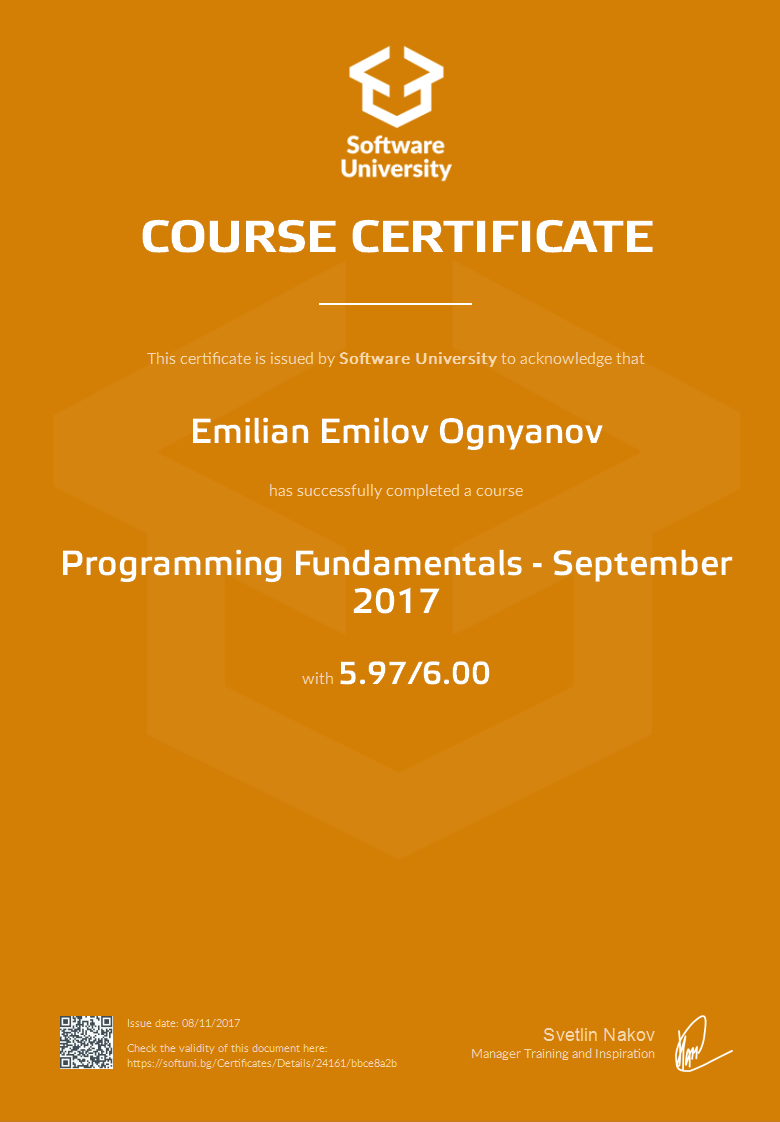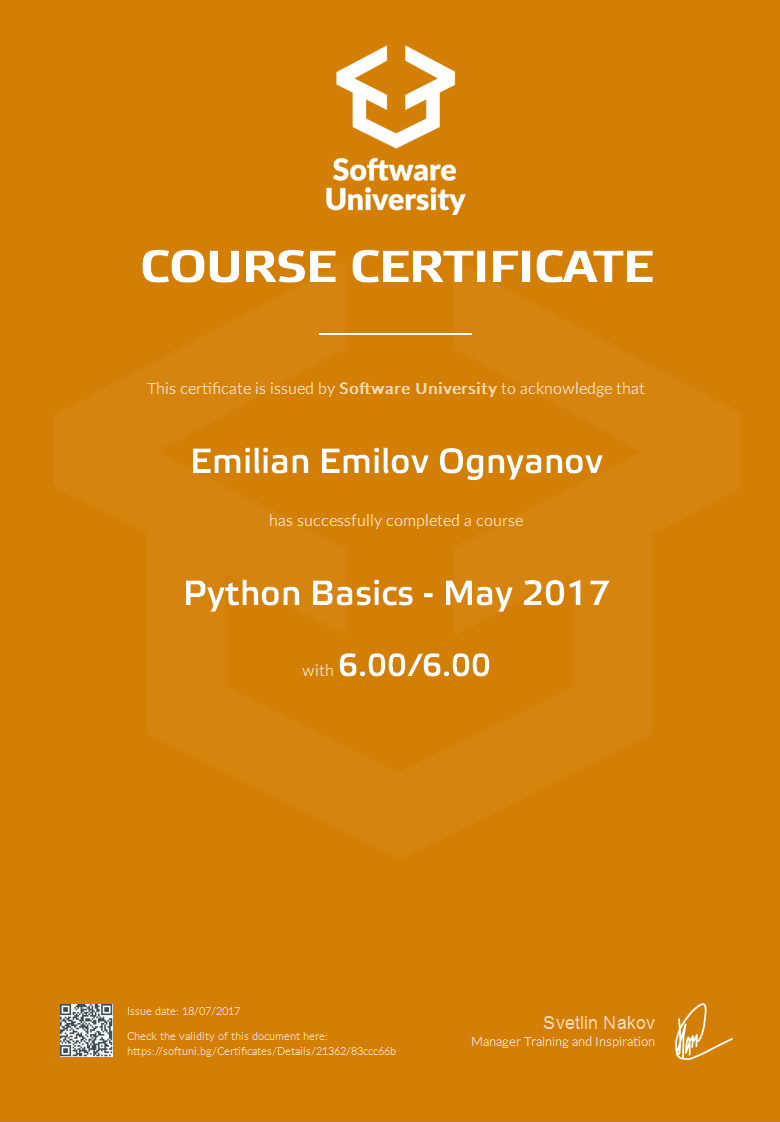
Emilian Ognianov
Freelancer
Bulgaria, EU
emilian.e.ognianov [at] gmail [dot] com
00359897200827
Skills
ASP.NET
Vue.js *
C#
SQL
Python
Django
JavaScript
HTML5 & CSS3
* currently studying
Languages
Bulgarian
English
Russian
Last Projects
078 NEWS / 078.news
Online news system
Technologies: ASP.NET Core, SQL, HTML3, CSS3, JavaScript, JQuery
Functionalities: Add, Update, Delete, Publish, Pin news posts. Three different type of users: Reporter, Editor, Administrator. News aggregator for the press releases of the Bulgarian government sites.
repository
live
Flask Blog
Flask Blog App
Technologies: Python Flask, SQLite, Bootstrap 4
Functionalities: Add, Update, Delete Posts. Register, Login, Logout User. Forgot password email verification.
repository
Django Blog
Flask Blog App
Technologies: Python Django. SQLite, Bootstrap 4
Functionalities: Add, Update, Delete Posts. Register, Login, Logout User. Forgot password email verification.
repository
Vue ToDo
Vue ToDo application
Technologies: Vue.js, HTML5, CSS3
Functionalities: Add, Complete, Delete Todos.
repository
live
Vue + Vuex ToDo
Vue + Vuex ToDo application
Technologies: Vue.js + Vuex, HTML5, CSS3
Functionalities: Add, Complete, Filter Todos.
repository
live
Certificates & Awards
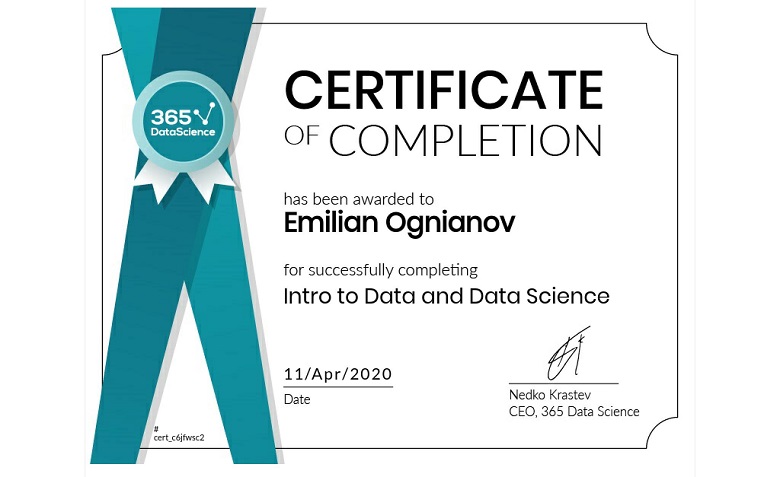
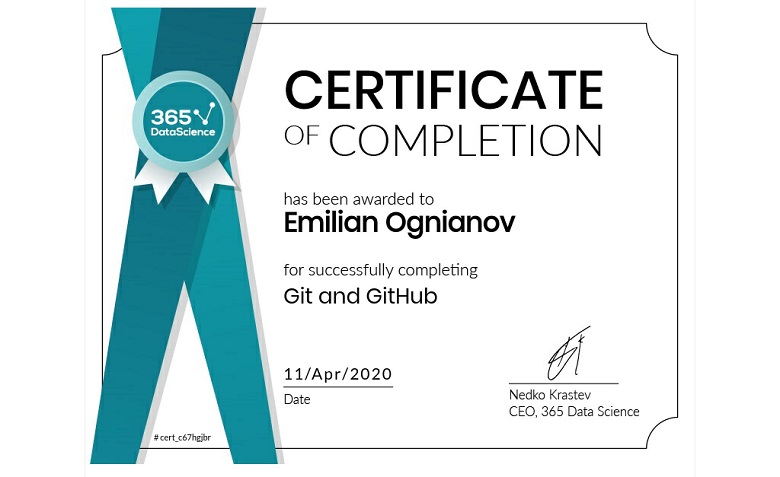
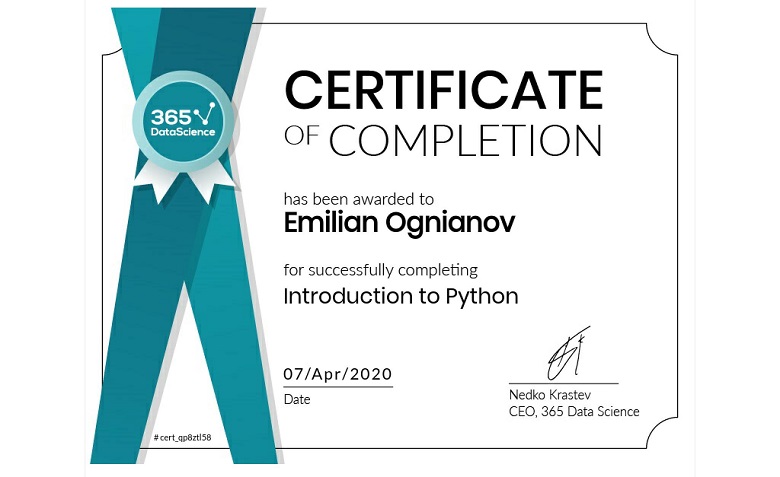
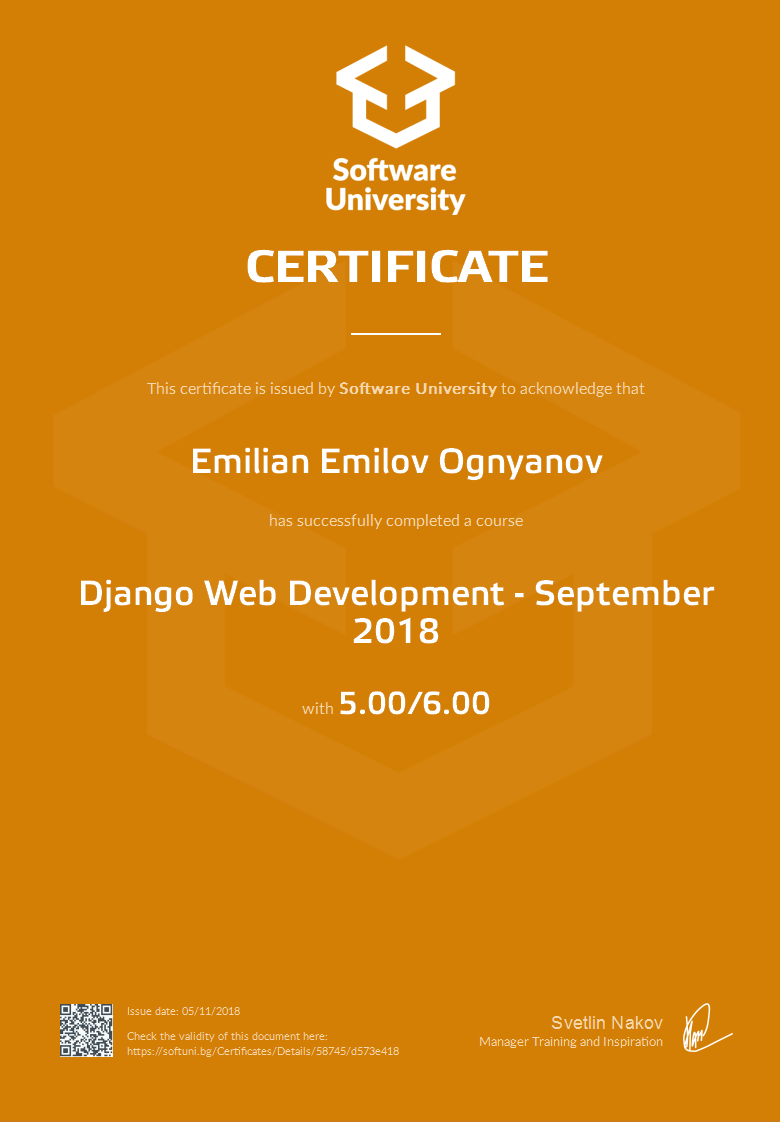
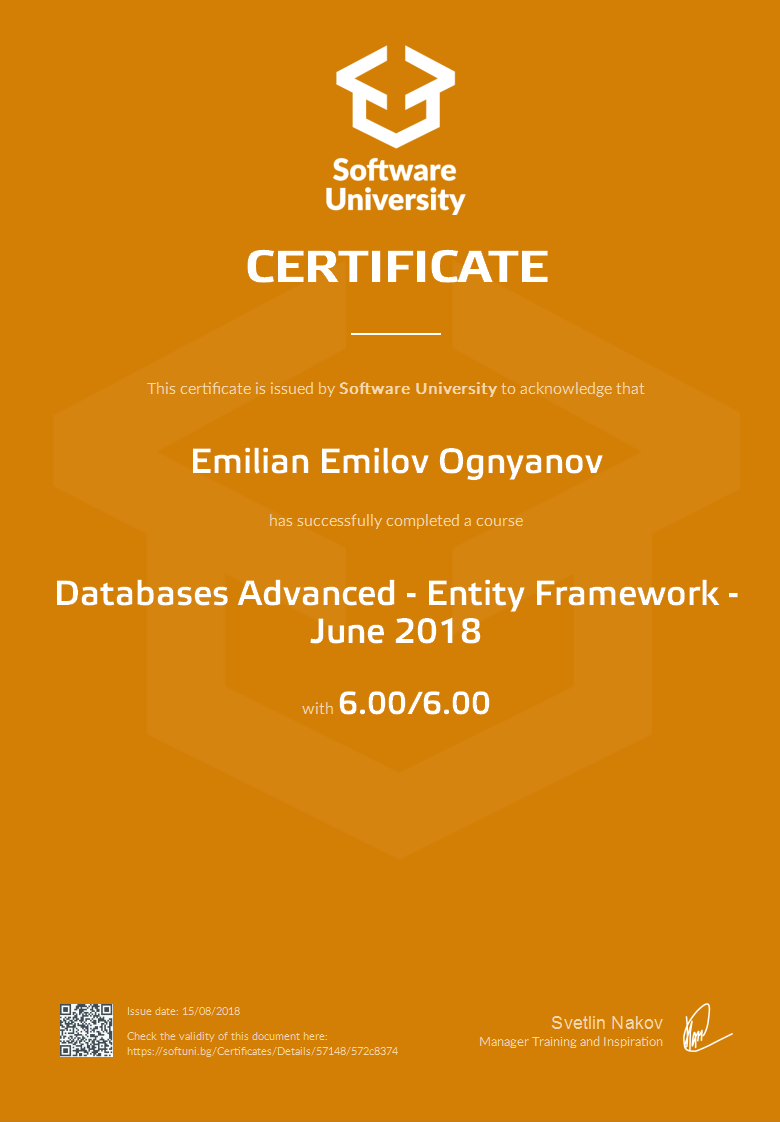
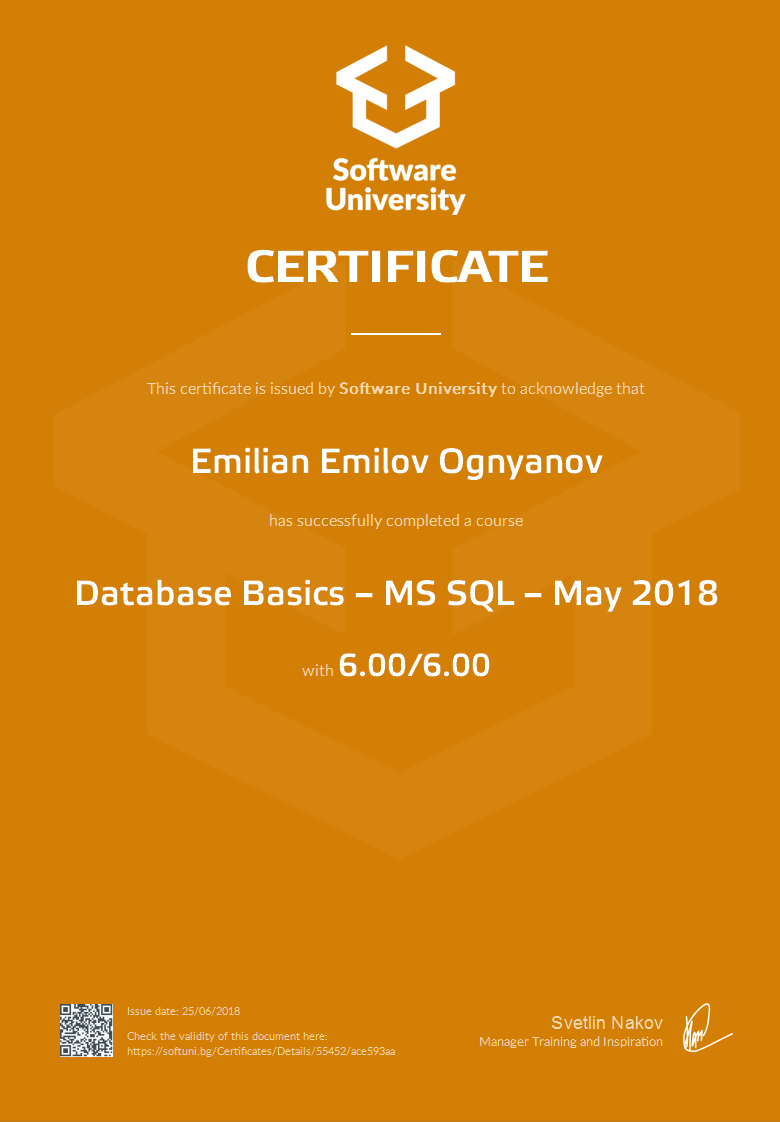
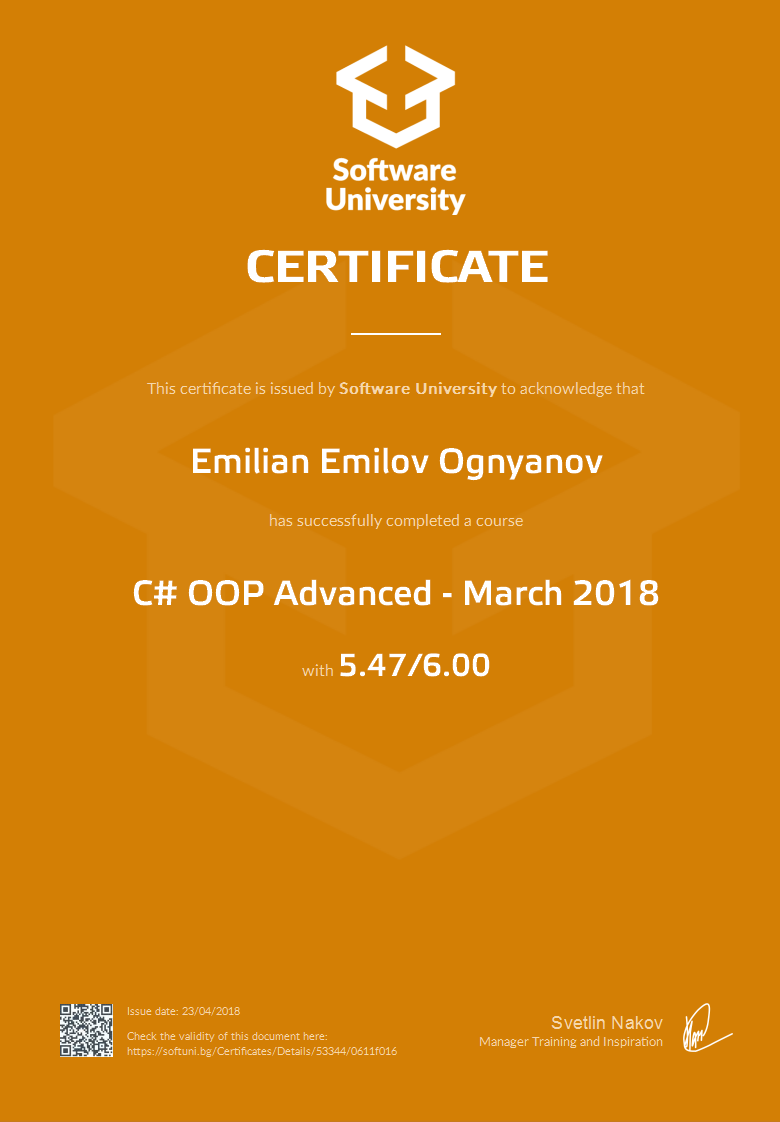
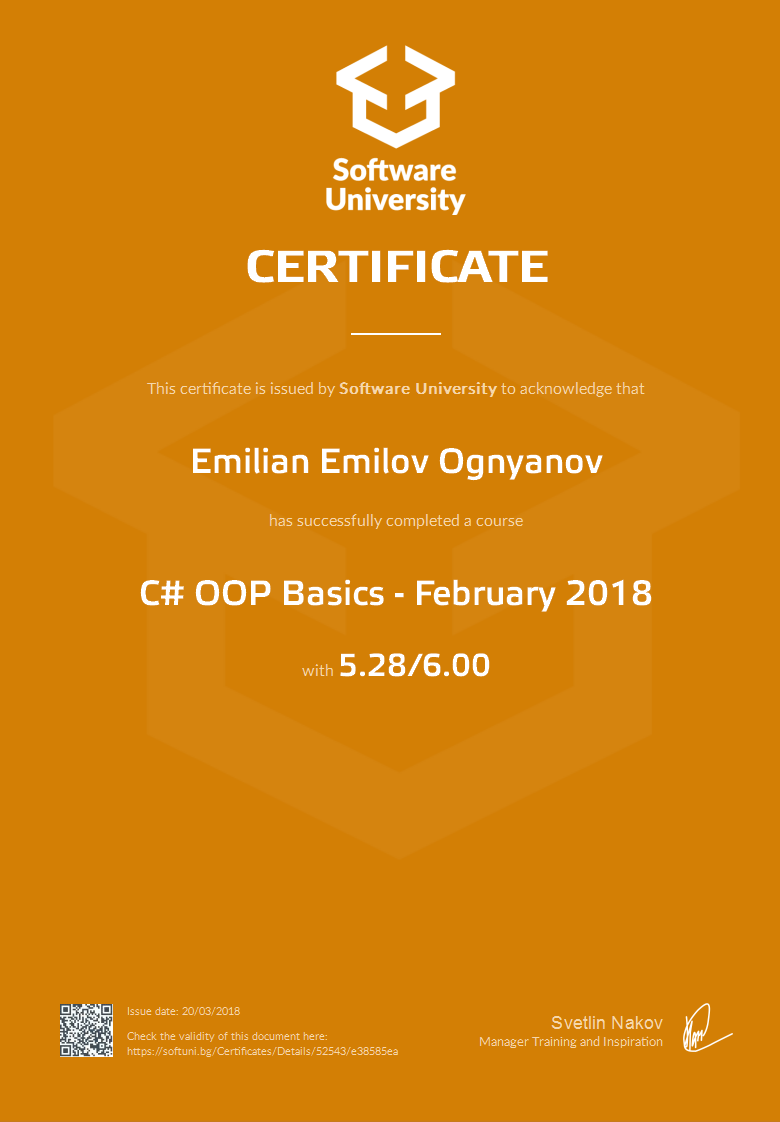
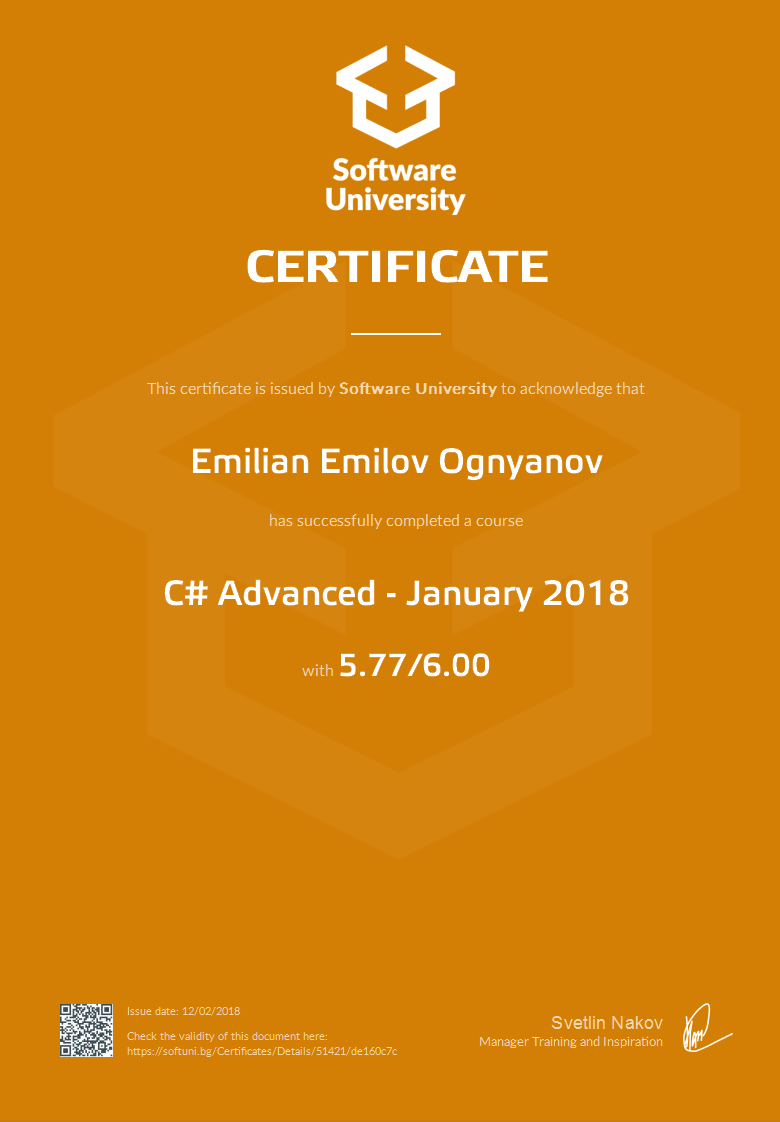
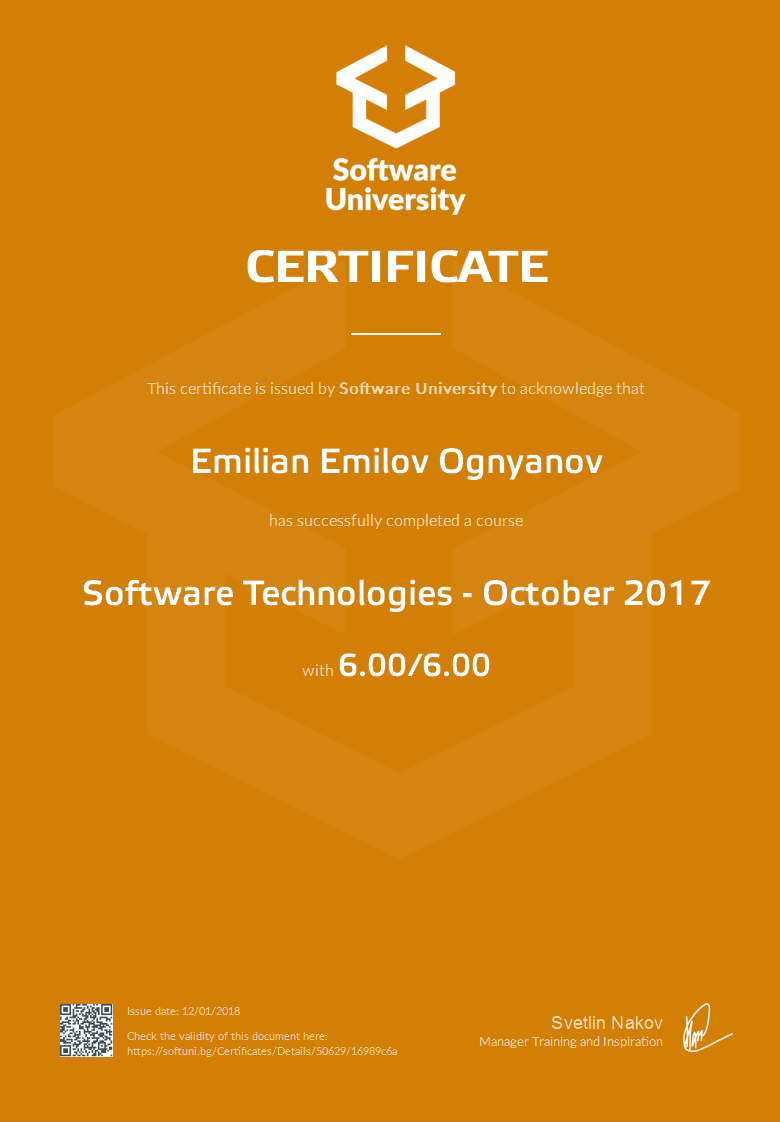
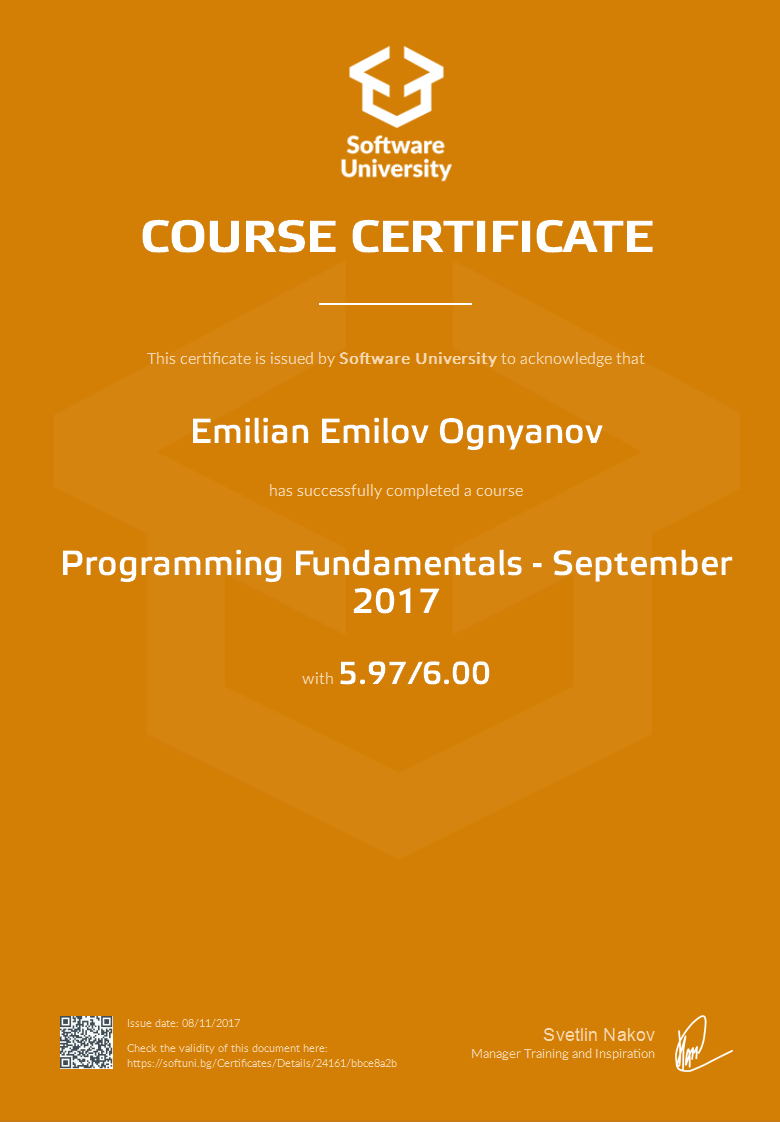
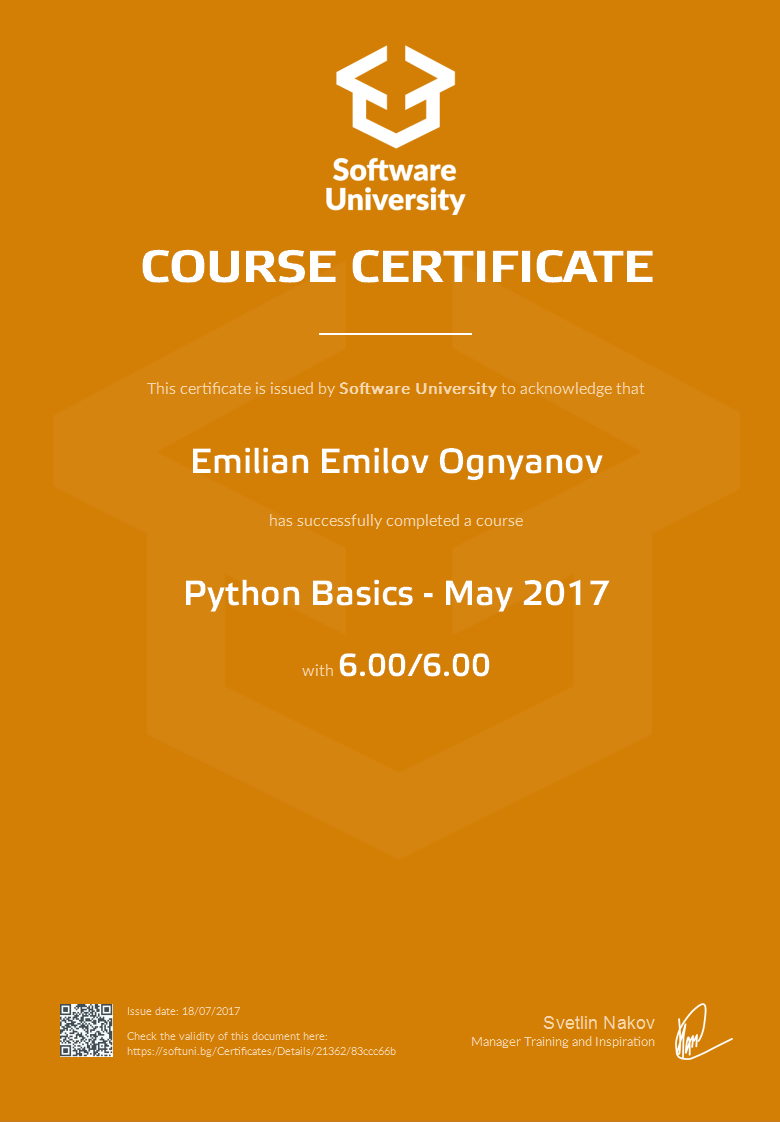

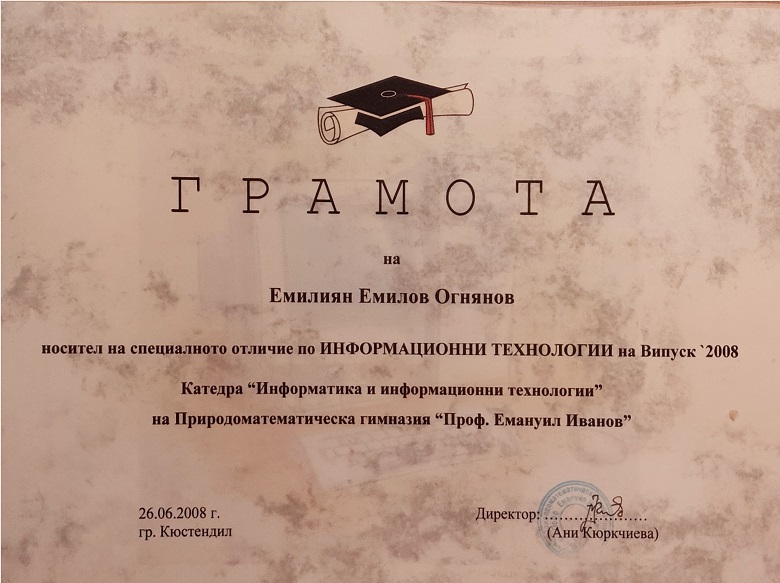
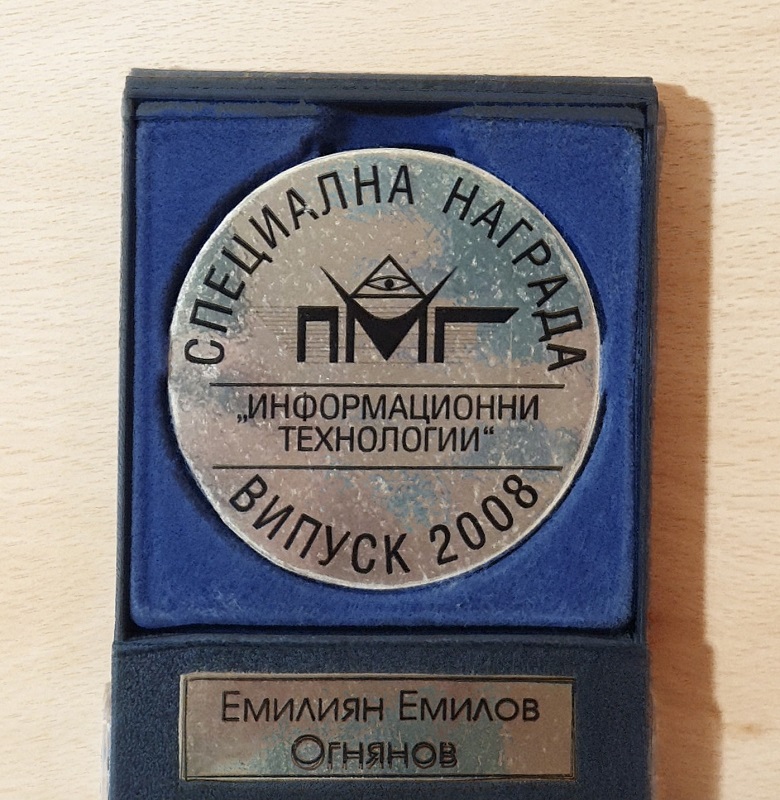
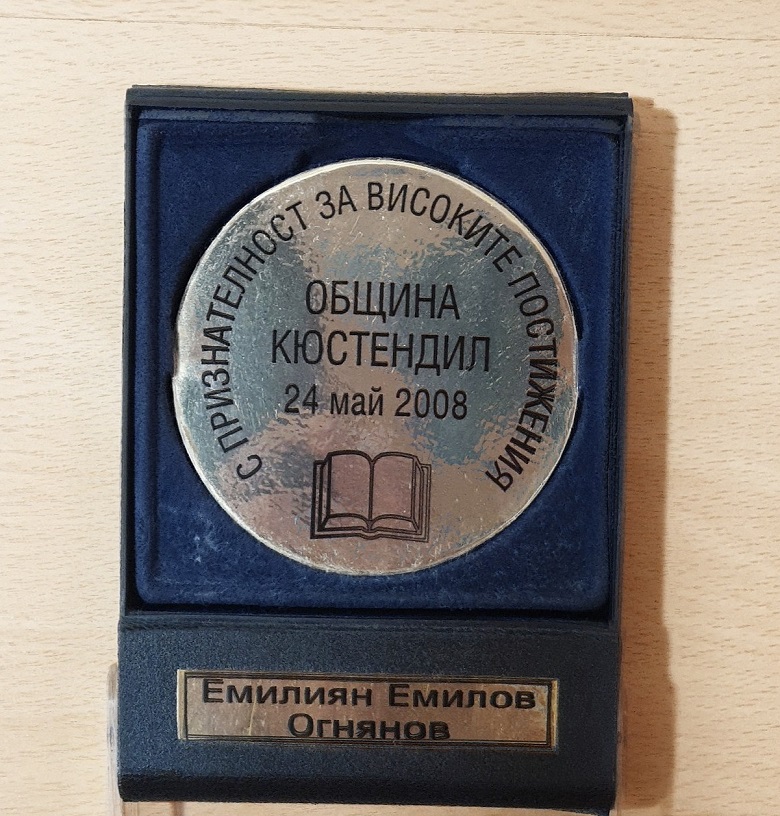
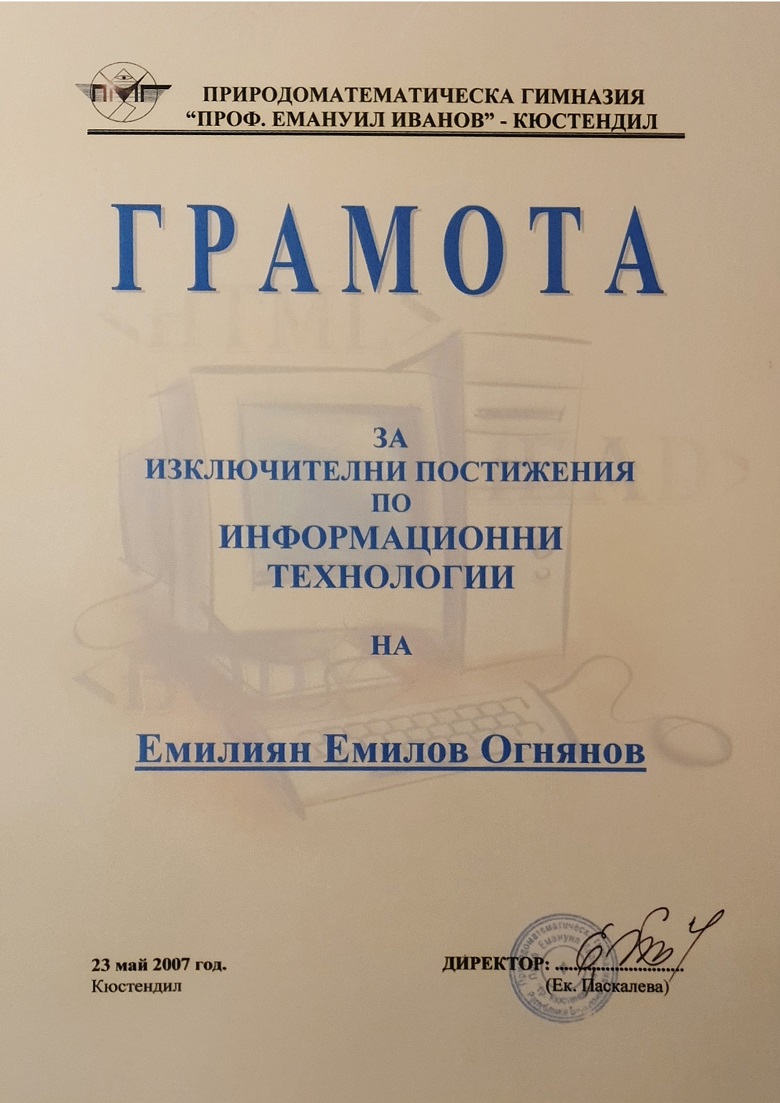
My Software Development Education
JS Applications
14 April 2019
In the JS Apps course you will learn what HTTP requests are and how to use them. You will be introduced to REST Services, what databases are and how to handle them, what is asynchronous code, what are Templating and Routing. You will understand what the architecture of an application is and how to structure your applications properly. At the end of the course you will create your own Single Page Application.
repository
JS Advanced
18 March 2019
In the JS Advanced course, you will build upon your knowledge of JavaScript by learning more sophisticated concepts such as IFFE, closure, objects and classes. This course will develop your algorithmic thinking and build on your knowledge of the DOM tree. You will learn how to manipulate the DOM tree, add and delete elements of it. Additionally, you will learn how to test your code using Unit Testing libraries. You will see the OOP section of JavaScript (inheritance, prototypes and prototypes chains).
repository
JS Fundamentals
11 February 2019
In the course "JS Fundamentals" you will learn the basic syntax of JavaScript. Data types, operators, expressions, conditional constructs, loops, and functions are studied. You will become familiar with the DOM tree and start working with JavaScript in your browser
repository
C# MVC frameworks - ASP.NET Core
10 January 2019
The ASP.NET Core course will teach you how to build modern web applications with the Model-View-Controller architecture using HTML5, databases, Entity Framework Core and other technologies. The ASP.NET Core Technology Platform, its components and architecture, the creation of MVC web applications, the definition of models, views and partial views with Razor view engine, controller definition, database operation, integration with Entity Framework Core, LINQ, and SQL Server. The course also includes more complex themes such as user experience, roles and sessions, AJAX usage, caching, web application security, web sockets, and libraries from MVC controls. Several practical laboratory exercises (labs) and workshops are being built to build comprehensive, full-featured ASP.NET Core web applications.
repository
C# Web Development Basics
06 November 2018
In the basic course of web programming, we will introduce you to basic web development principles such as HTTP protocol, sessions and ways of preserving the status, caching of data, various data transfer protocols, security. We will write our own MVC framework based on C # and MS SQL Server, splitting models, views and controllers, with front-controller and router, supporting all the basic functionalities needed for a modern web application: data visualization, tables, CRUD data operations, forms, paging, validation, notifications, users, sessions, login / logout, and more. In practice, you will learn to create your own C # and SQL Server web applications and understand how web applications work as a structure and how MVC (model-view-controller) technology works in modern web applications. This course sets out the basics of important principles set in the next courses and used in the technologies to be studied.
repository
Django Web Development
05 November 2018
The Django Web Development course will introduce you to one of the most used frameworks for building Python web applications. The aim of the course is to give you the basic knowledge and skills needed to build the back-end logic of web applications.
repository
Database Advanced - Entity Framework
15 August 2018
Working with a modern ORM technology: Entity Framework (EF), which is a ORM standard in C # and .NET applications. EF allows mapping between a relational database and object-oriented model using the "database first" and "code first" approaches and provides a powerful object-oriented API for querying the database and performing CRUD operations. Demonstrate established practices in building a database layer on sophisticated systems using the "Repository" and "Unit of Work" templates.
repository
Database Basics - MS SQL
25 June 2018
Databases are the standard way to use dynamic information in modern applications, making them an integral part of almost every application. Intensive course basics of databases will introduce you to one of the most widely used database management systems (DBMS) used in the development of modern information systems - Microsoft SQL Server. The course focuses on relational modeling, data modeling with ER diagrams (tables and relational links) and SQL language handling (data mining, selection, projection, joining, aggregation, grouping, modification, deletion and insertion). Fundamental knowledge about ACID transactions and transaction processing and practical tips for adjusting productivity are provided.
repository
C # OOP Advanced
24 April 2018
In the Object Oriented Programming (OOP) course you will learn about the principles and best practices for building quality software. You will become familiar with the concepts of writing quality code in OOP in C#. This includes using abstractions, refactoring, and writing unit tests, reflection, working with generic data types, using events and techniques, and tools to improve the quality of the code.
repository
C # OOP Basics
20 March 2018
The Object-Oriented Programming course will teach you the principles of Object Oriented Programming (OOP), how to work with classes and objects, how to use object-oriented modeling, and build class hierarchies. The basic principles of the OOP will be studied as abstraction (interfaces, abstract classes), encapsulation, inheritance and polymorphism. We will pay attention to paradigms such as event-driven programming, functional programming (lambda functions, closures and LINQ), exception handling. We'll look at cloning, comparing, and crawling objects. We will briefly go into the most commonly used design patterns.
repository
C # Advanced
12 February 2018
The C # Advanced course examines the .NET platform, as well as working with the C # language above the startup. This includes coding skills, solving problem solving skills, familiarizing with standard tools for working (.NET Framework), word processing tools, linear and tree collections, and working with files and directories. Particular attention is paid to the functional programming paradigm as well as to the basic tool bundling it - LINQ to process data streams.
repository
Software Technologies
12 January 2018
The "Software Technologies" course provides initial knowledge of the most used software technologies in practice and allows students to orientate which technologies they like to study them more thoroughly. Basic concepts from front-end and back-end development are studied. The course consists of four parts: HTML5 development (HTML + CSS + JavaScript + AJAX + REST), PHP web development (PHP + MySQL), C # Web development (ASP.NET MVC + Entity Framework + SQL Server) Java + Spring MVC + Hibernate + MySQL). The training methodology is extremely practical. The studied material is presented with a little theory, with numerous examples and a great number of practical tasks with increasing difficulty and upgrading one after the other, with detailed instructions. Practical work in a class under the supervision of lecturers and assistants (or home for online students) is over 70%. The course only introduces the technologies studied and gives very basic skills without going into depth.
repository
Programming Fundamentals
11 November 2017
The “Programming Fundamentals” course extends the previously gained basic coding skills from the “Programming Basics” course at the Software University and adds additional knowledge and practical programming skills. The course covers source control systems, Git and GitHub for team collaboration, understanding the basic data types in programming, extracting pieces of code into methods with parameters and return value, using the debugger to trace the program execution and find bugs, processing sequences of elements using arrays and lists, using collections, working with matrices for processing tabular data, working with dictionaries to map keys to values, using strings for text processing, and the basics of working with classes and objects, using API classes and defining simple classes.
repository
Python Basics
18 July 2017
Course is about basic coding skills, working with IDE, using of variables, condition statements, loops and other simple things.
repository
Education
Software University - Sofia, Bulgaria
2017 - 2019
C# Web Developer
Technical University - Sofia, Bulgaria
2008 - 2013
Bachelor`s degree, Electronics
High School of Mathematics and Science "Prof. Emanuil Ivanov" - Kyustendil, Bulgaria
2003 - 2008
Informatics
